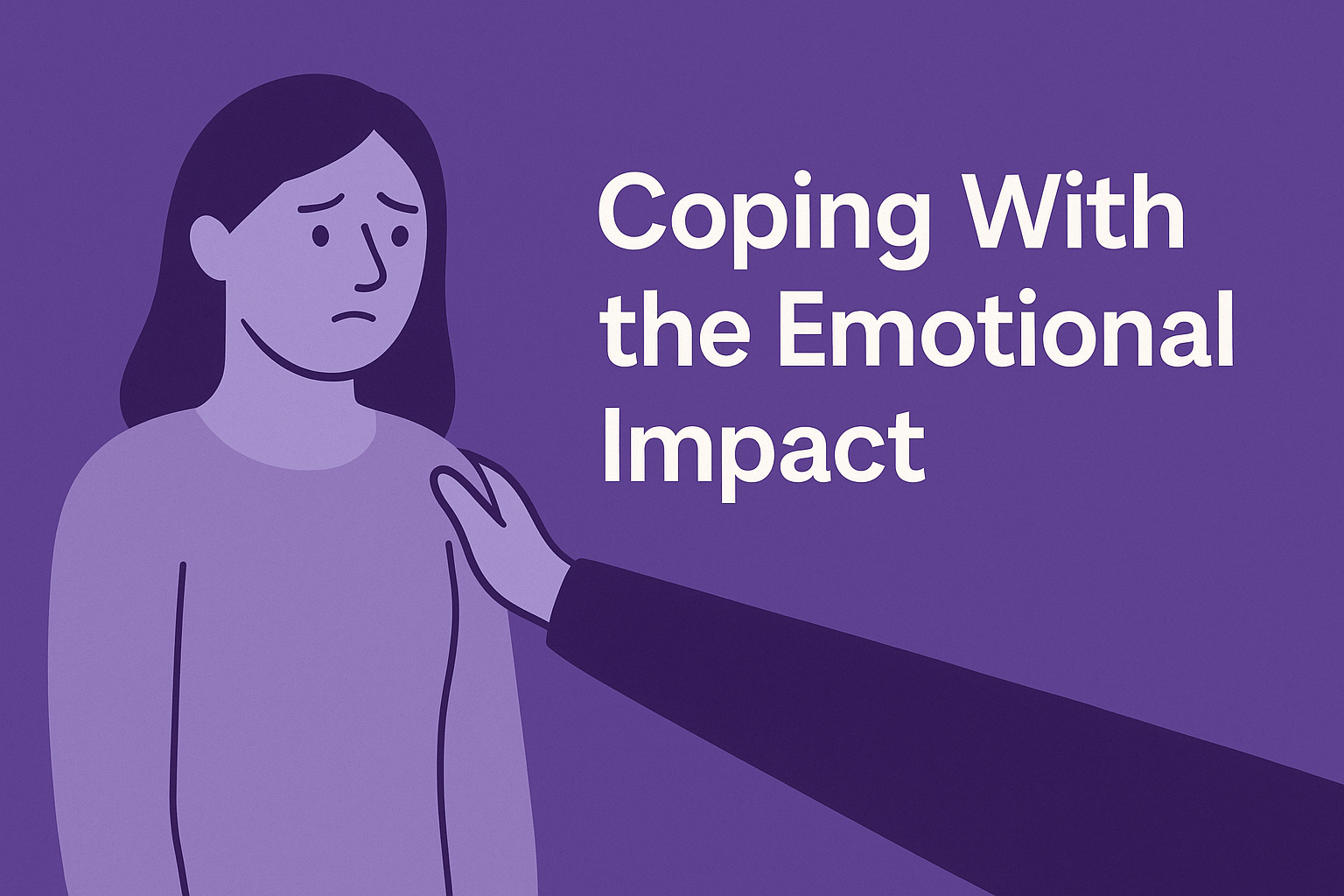Strategies for caregivers to manage stress, guilt, and emotional health.
Overview: Caregiving brings emotional highs and lows for both patient and caregiver.
- Supporting your loved one’s mental health
- Managing stress, anxiety, guilt, and burnout
- Setting boundaries and seeking balance
- When to consider counseling or therapy
Coping With the Emotional Impact
The emotional toll of pancreatic cancer is heavy, and it affects more than the patient. Caregivers, spouses, children, and close friends often feel fear, anxiety, sadness, or guilt while trying to stay strong for their loved one. These feelings are normal. At Sky Foundation, we know this firsthand—our board and caregiver committees are filled with people who have walked the same path. You are not alone, and with the right support, you can find strength and resilience in this journey.
Supporting Your Loved One’s Mental Health
A cancer diagnosis can bring shock, sadness, and uncertainty. Caregivers play a vital role in creating emotional safety.
- Practice active listening: Give space for your loved one to express feelings without judgment.
- Encourage open communication: Ask gentle questions like “How are you feeling today?” instead of “You’ll be fine.”
- Normalize mental health care: Suggest counseling, support groups, or spiritual guidance as part of treatment.
- Promote small joys: Reading, music, or outdoor walks can lift spirits during difficult days.
Managing Caregiver Stress, Guilt & Burnout
Caregivers often put their own needs last, leading to burnout. Recognizing the warning signs early is key.
- Look for warning signs: Irritability, constant fatigue, or withdrawing from friends.
- Use respite care: Ask a family member to cover for you, or explore professional respite services.
- Set realistic expectations: No one person can do everything. Focus on what matters most.
- Release guilt: Self-care is not selfish. Rest and nourishment allow you to care more effectively.
Sky Foundation’s caregiver communities are safe spaces where you can share these feelings with others who truly understand.
Coping Strategies for Emotional Balance
In addition to counseling, you can build daily habits to protect your own emotional well-being:
- Create routines: Structure reduces anxiety for both you and your loved one.
- Practice mindfulness: Breathing exercises, journaling, or meditation can ground you.
- Stay connected: Isolation increases stress. Schedule check-ins with friends or join a support group.
- Maintain hobbies: Reading, exercise, or creative outlets help maintain your identity beyond caregiving.
When to Seek Professional Counseling
Sometimes emotions become too heavy to manage alone. Consider counseling if you or your loved one:
- Feel persistent sadness, hopelessness, or loss of interest in daily life.
- Struggle to sleep, eat, or manage daily responsibilities.
- Experience strained family or marital relationships.
- Feel overwhelmed despite using coping strategies.
Professional help can provide tailored strategies for individuals, couples, or families navigating cancer together.
Building Strength Through Community
One of the strongest antidotes to isolation is connection. By joining Sky Foundation’s caregiver committees and survivor communities, you’ll meet others who have faced the same fears and challenges. These communities provide emotional support, practical strategies, and reassurance that you are not alone.
Legacy of Care
Caregiving leaves an impact far beyond the immediate journey. Sky Foundation’s Legacy Giving program offers a way to honor your caregiving role by supporting research, survivor-led programs, and caregiver resources through your will or estate. You can even choose the specific projects or initiatives you want to support, ensuring your love and care continue to shape the future of pancreatic cancer support.
Key Takeaway
The emotional impact of pancreatic cancer is as real as the physical one. Caregivers and families often feel guilt, fear, or exhaustion—but these emotions don’t have to be carried alone. By building coping strategies, seeking counseling when needed, and connecting with survivor-led communities at Sky Foundation, you can find resilience. Through Legacy Giving, you can also extend that resilience far into the future, ensuring your strength and care leave a lasting legacy.

